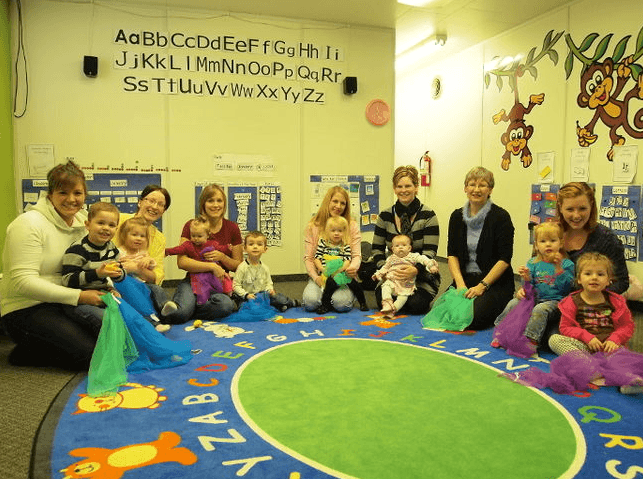
Any musician or music teacher, at some point, gets the “call.” Honestly, why would anybody choose a profession that requires both hours of consistent, disciplined musical practice, and, the ambiguous hours spent soul-searching, composing and creating.
Few musicians choose music: music chooses them.
That’s why new and ongoing research about the scientific benefits of music training is so essential. Skeptics need cold hard facts, and musicians need warm fuzzies. Because not everyone is comfortable simply knowing that a life with music is a good thing. Some people need convincing. The rest of us – the ones making music – need believers.
That said, we delight every time we read about a music teacher, such as Linda Pelech, who decides to teach Kindermusik. That means one more person is out there doing the work they love, making music an essential part of not only her life — but for the life of every child and parent who enters the classroom.
So for the believers, you might like to know there’s one more out there, just like you, running scales and soul searching.
And for the skeptics, we’d like you to know there’s so much more to this “music thing.”
Take a look.
- “Musical training as children makes better listeners later in life,” said Nina Kraus, the Hugh Knowles Professor of Neurobiology, Physiology and Communication Sciences at Northwestern. Source: A Little Music Training Goes a Long Way
- One-year-old babies who participate in interactive music classes with their parents smile more, communicate better and show earlier and more sophisticated brain responses to music. The findings were published recently in the scientific journals Developmental Science and Annals of the New York Academy of Sciences.
- “Music and reading are related via common neural and cognitive mechanisms and suggests a mechanism for the improvements in literacy seen with musical training,” according to the team lead researcher, Dr Nina Kraus, at Northwestern University. Researchers from the Auditory Neuroscience Laboratory at Northwestern University tested children on their ability to read and to recognize words. This was compared to the extent of their auditory working memory (remembering a sequence of numbers and then being able to quote them in reverse), and musical aptitude (both melody and rhythm).
Calling all believers and skeptics: Kindermusik has something for everyone. A structured curriculum, online training, and ongoing support to help you along the way. Ask today about becoming a Kindermusik Educator.
- Sign-up to become a Kindermusik Educator
- Learn more about Teaching Kindermusik
- Get info on Starting Your Own Kindermusik Program

